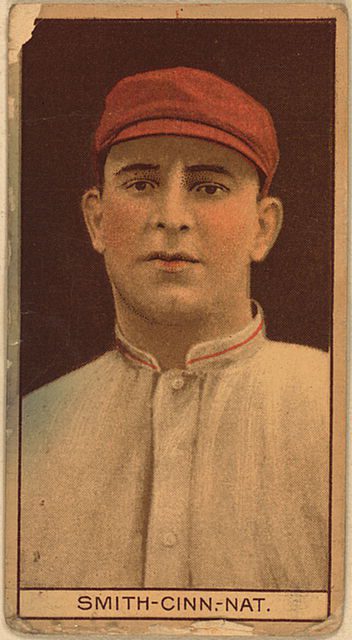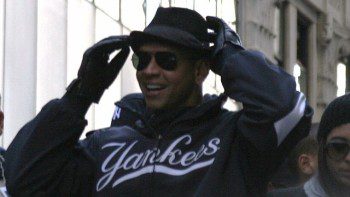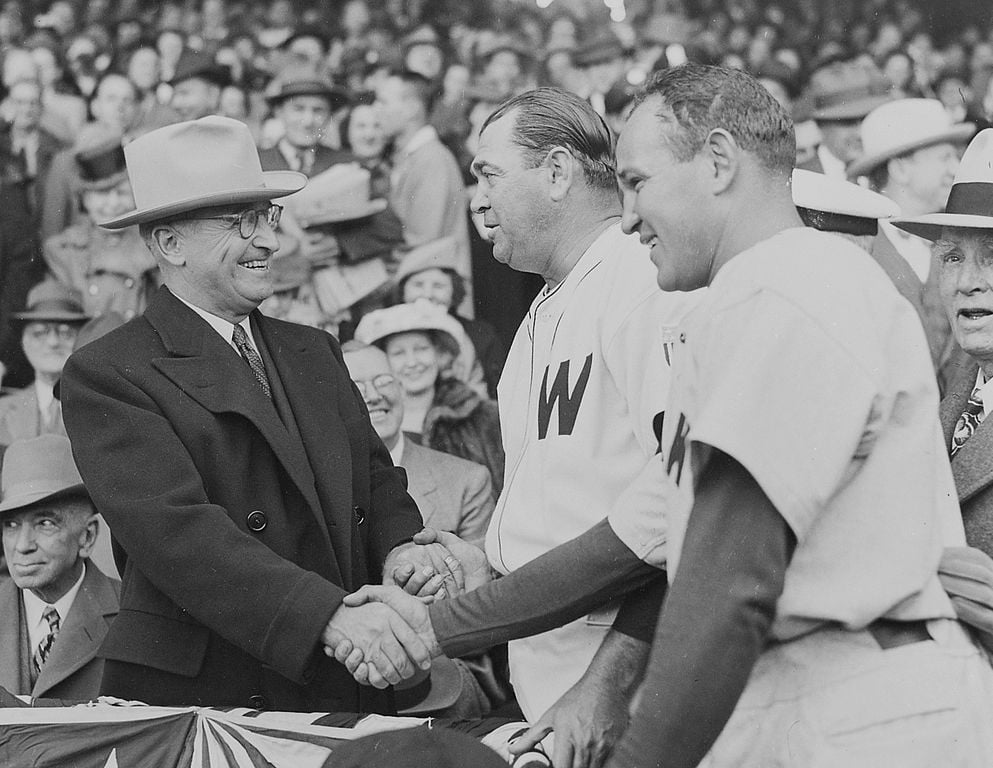Great Ballplayers (like Great Movers) have Great Names
Walter “Big Train” Johnson. “Shoeless” Joe Jackson. And, of course, Clarence “Pants” Thomas (no relation).
Baseball was once a sport full of colorful nicknames. Even fictional baseball players had great monikers. While we all love Big Papi, nicknames today simply don’t catch the ear with the same impact as “Death Valley” or “Wagon Tongue.”
Like all the best moving companies in Boston we try to find good examples of movers and implement their experience into the work of our Boston moving company. And to celebrate the start of the baseball season this week, we remember Safe Responsible’s all-time favorite baseball player: Frank E. “Piano Mover” Smith.

Frank “Piano Mover” Smith by American Tobacco Company [Public domain], via Wikimedia Commons
Most impressive to us, however, is what Smith did in the off-season. Smith, like us, was a mover. In fact, he worked for his father’s furniture moving business. (It must have been a very successful moving business indeed, as the baseball season and the busy moving season coincide almost exactly.)
Great Movers sometimes have Great Demons
Somewhat of a maverick during his days in Chicago, he was criticized for his drinking habits, which often caused him to miss morning practices. Eventually, White Sox owner Charles Comiskey grew tired of the Piano Mover’s erratic behavior and constant threats to leave the team — especially because Smith would occasionally follow through on these threats, returning home to work for his father for brief periods.
So a fed-up Comiskey traded the mercurial mover to Boston in August of 1910.
If it sounds far-fetched that someone would consider throwing away a professional baseball career to be a mover, remember, this was a very different time. There were no agents, no union, no endorsement deals, no $275 million contracts.
In fact, in 1915, when the upstart Federal League brought an anti-trust lawsuit against the Major Leagues, it did so in front of known liberal, pro-union, and anti-trust judge Kenesaw Mountain Landis. Much to the dismay of the Federal League (for which Smith briefly played toward the end of his career), Judge Landis refused to rule on the case, explaining to one of the lawyers, “I am shocked because you call playing baseball ‘labor.’”
To the old Piano Mover, a stable career with a successful family business might not have seemed so bad comparatively, especially as he began to age and his skills started to erode.

Most ballplayers today decline to pursue off-season employment. By edogisgod (Alex Rodriguez) [CC BY 2.0], via Wikimedia Commons
Great Movers Always have a Backup Plan
This article from the April 10, 1912 edition of the Daily Times sums up Smith’s feelings on the matter. It appears that instead of signing with Cincinnati for the tail end of his career, the Piano Mover would have preferred to open a restaurant in Pittsburgh. All those years watching his father run his own business must have had an effect on him. According to the article, if Smith could get everything lined up right — the space for the restaurant, the loan, etc. — he was going all-in on the cafe. Playing professional baseball was his backup plan!
The short write-up notes that, like any veteran mover confronting the twilight of his career, “he intends to quit while his services are sought instead of waiting to be kicked out.” We should all be so lucky, Frank.
Happy Opening Day, everyone.
Looking for a quote for your move? Click here and get a moving quote from some great movers today!

